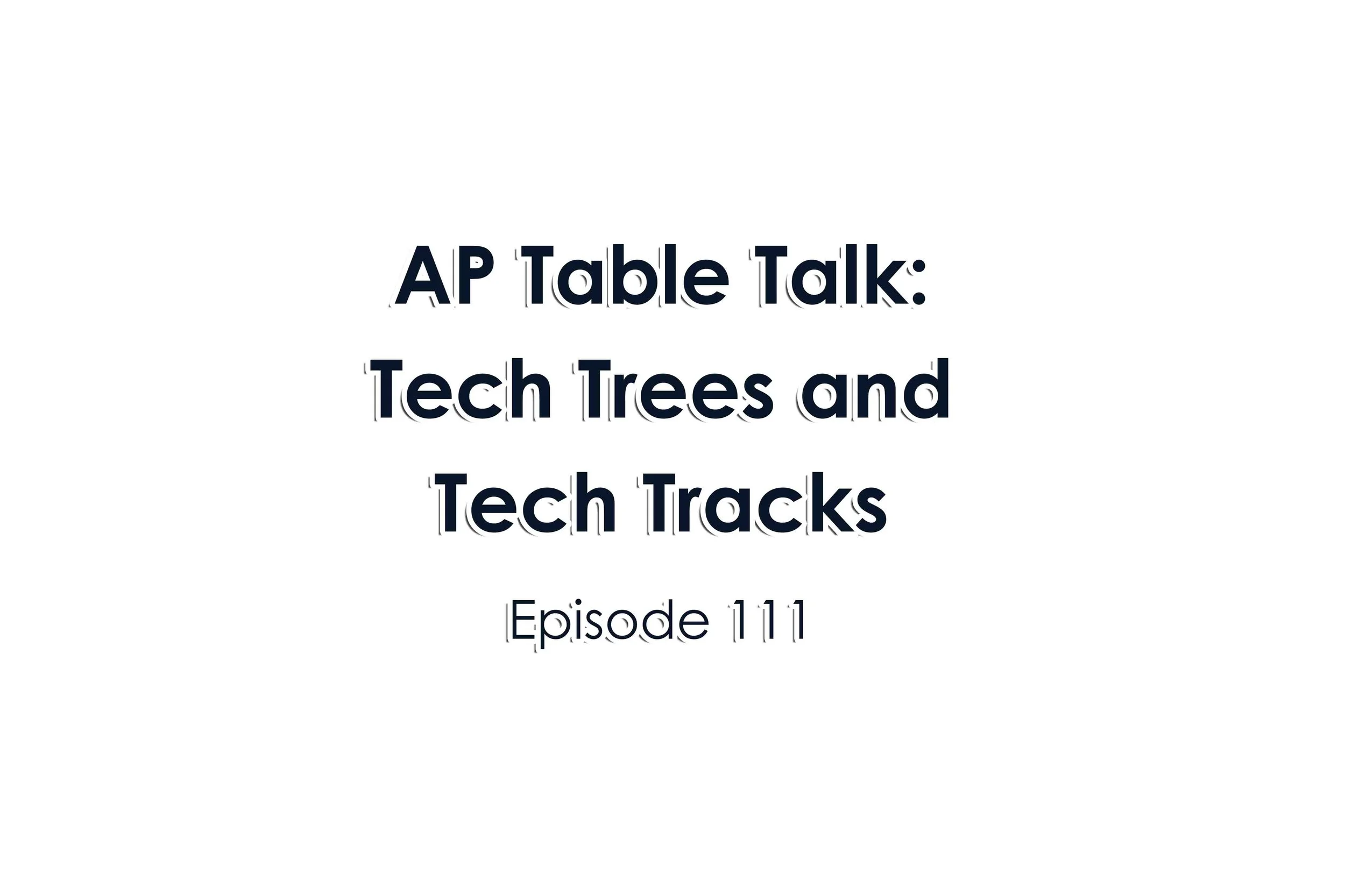In this episode of AP Table Talk, the hosts Brian and Dave Eng explore the “mega topic” of hidden information in games. They explore hidden role games and games with hidden information, discussing examples like Battlestar Galactica and Scotland Yard. They touch on games such as Inside Job, Werewords, Dune, and HeroQuest, exploring their unique gameplay elements and how hidden information impacts strategies. They talk about the challenges of teaching these games to new players and the importance of understanding game states for effective gameplay. They share their experiences with different games, emphasizing replayability and excitement. The episode also covers communication-limited games like Codenames and Just One, highlighting how such mechanics enhance the social aspect of gaming. They also discuss traitor games and the psychological intrigue they add to gameplay. Overall, the episode provides insights into the appeal, challenges, and evolving nature of games with hidden information in modern tabletop gaming.
Read MoreIn this episode of AP Table Talk, the hosts Brian and Dave Eng explore the enduring appeal of trick-taking and ladder climbing games. They reminisce about classic games like Hearts and Euchre, delving into lesser-known variants such as Nine Five Two, where players aim for different trick objectives. The conversation touches on modern games like SCOUT and Haggis, highlighting their strategic nuances. They discuss the diversity in ladder climbing games, focusing on favorites like Tiger & Dragon and Sail, and how these games adapt to various player counts. They share insights into their preferred contemporary trick-taking games and ponder potential variations within the ladder climbing mechanic. The episode concludes with reflections on the evolving dynamics and meta plays in trick-taking games, making them timeless favorites.
Read MoreIn this episode of AP Table Talk, hosts Brian and Dave Eng focus on "tech tree" and “tech track” games. They emphasize how tech trees are a central component of many video games and board games, offering players various strategic paths and upgrades. They mention games like "Tapestry" and "Space Station Phoenix" that use tech tracks and tech trees for engine-building and resource management. They also explore how tech trees can add complexity and thematic depth to games and highlight the importance of balancing different strategies. They touch upon games like "Civilization" and "Terraforming Mars" and discuss the idea of introducing legacy elements to tech trees, allowing progress across multiple plays. The episode provides insights into how tech trees enhance gameplay in various genres and why they are a popular game mechanic.
Read MoreIn this episode of AP Table Talk, hosts Brian and Dave Eng focus on rondel games, where players move along a circular track to take actions. Dave introduces "Patchwork" as a significant game he played early in his relationship. They discuss games like "Sabika," highlighting rondel mechanics and unique elements. They mention thematic considerations, player count dynamics, tie-breakers, and variations in game mechanics. Dave and Brian also touch on games with changing rondel layouts and explore twists in mechanics, such as action resolution prior to moving. They conclude by reflecting on the accessibility and strategic choices offered by rondel mechanics.
Read MoreIn this episode of AP Table Talk, Brian and Dave discuss pick-up and deliver games. They start by reminiscing about their experiences with such games, including their favorite titles like Bus and Flash Point: Fire Rescue. They also mention other notable games like Clank! and Earth Reborn. They share their likes and dislikes about the pick-up and deliver mechanic, highlighting the importance of clear objectives and significant gameplay. They discuss variations within the genre, such as hidden movement combined with pick-up and deliver mechanics. The episode concludes with a discussion on the efficiency of pick-up and deliver mechanics.
Read MoreIn the first episode of AP Table Talk, a podcast that explores board games, Brian and Dave Eng discuss the Grid Coverage mechanic. They define the mechanic as players covering a grid or filling a space using various shapes such as polyominoes. Some of the games that they discuss which use this mechanic include Patchwork, Blokus, Copenhagen, Cultivate, Silver and Gold, and Tiny Towns. Brian and Dave also discuss the strengths and weaknesses of the mechanic, such as the strong core loop and the potential for it to be luck-dependent. They mention twists on the mechanic, such as enforced fill order and the extension of Grid Coverage upwards.
Read MoreOn today’s episode we’ll cover how to use game mechanics for learning. Game mechanics are the rules and procedures that guide players through the game. These mechanics also provide the structure for how the game reacts to players’ actions. This definition is great for game designers and developers, but what about for educators, instructors, professors, and teachers? How do they use game mechanics for teaching and learning? How can students benefit from game mechanics through games-based learning?
Read MoreOn today’s episode we’ll cover “Game Mechanics.” One of the first things that designers attempt to do with a new game is outline its mechanics. Specifically, they’re trying to determine what players will be doing throughout the game and how they’ll accomplish it.
Read More







